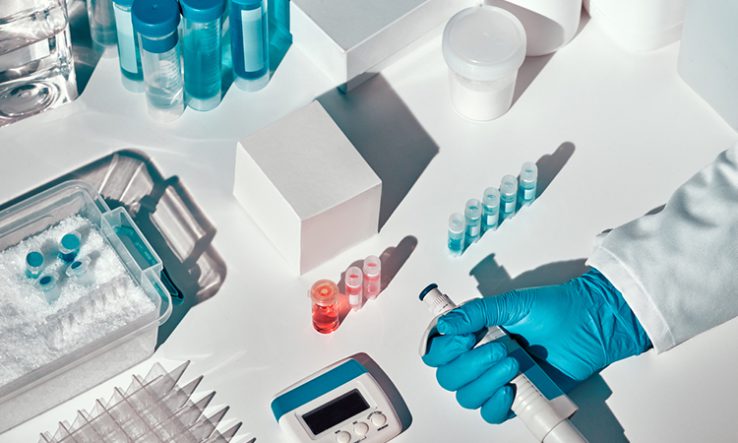
The move comes as questions raised over millions of diagnostic kits purchased by government
Pharma giants AstraZeneca and GSK have teamed up with the University of Cambridge to set up a new testing laboratory at the university’s Anne McLaren laboratory.
The lab will be used for high throughput screening for Covid-19 testing and to explore the use of alternative chemical reagents for test kits in order to help overcome current supply shortages, the university announced on 7 April.
AstraZeneca and GSK are also collaborating to provide support to the UK national testing centres in Milton Keynes, Alderley Park and Glasgow where samples from patients and healthcare staff are being checked for the Covid-19 virus.
“While diagnostic testing is not part of either company’s core business, we are moving as fast as we can to help where possible,” said GSK in a statement, “with a focus on providing our world-class scientific and technical expertise—working both with the Government’s screening programme and alongside the wider life sciences sector and specialist diagnostic companies.”
The news comes as it appears that millions of tests the government has already bought may not be working properly.
“Multiple tests have been provided for evaluation,” said John Bell, professor of medicine at Oxford University and government advisor on life sciences, on 5 April. “We have been very careful to test using gold standards.”
“Sadly, the tests we have looked at to date have not performed well. This is not a good result for test suppliers or for us.”
The government is now pushing ahead with looking for a test that does work “with suppliers both new and old”, said Bell, although he warned this would take at least a month. As well as impacting the timing of any lifting of the current lockdown, this delay could also harm health outcomes.
“Every single day that the United Kingdom fails to substantially expand testing capacity by using all possible resources more people will suffer the health and economic consequences of Covid-19,” said Matthew Lesh, head of research at the Adam Smith Institute, in a briefing paper published on 1 April.
“A significant reason for the limited numbers of tests is the policy to centralise testing in [Public Health England] and a limited number of NHS laboratories,” he added. “There are hundreds of NHS, university, and private sector laboratories across the UK that are currently not being utilised to undertake testing.”
In his paper on increasing testing capacity he calls for:
- fast-track approval for private sector laboratories
- substantially expanded usage of NHS and university laboratories
- rapid approval of private sector developed tests, including mutual recognition of tests approved by other regulatory bodies
Lesh welcomed last week’s announcement that the government is aiming for 100,000 test a day by the end of April.
“We’ve wasted too much time with an excessively centralised, bureaucratic approach to testing,” he said. “We will need both fast-track approval for labs and new tests in order to reach the ambitious 100,000 tests per day target.”